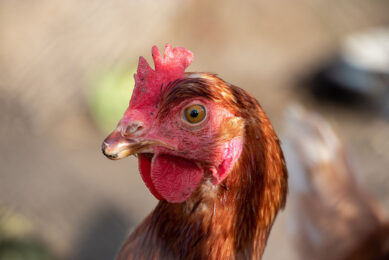Egypt to ban live bird markets
Sometimes entrepreneurial poultry industry people have to ask against their philosophy of free entrepreneurship the support or interference of the government to maintain their business.
In many cases this call for support is to protect the industry against “unfair” competition from abroad by creating an import ban, to impose import levies, or to subsidise inputs. These calls are often meant to protect the industry against negative effects caused by external threats. It does not happen that often that the industry asks the government to protect it against colleagues within the industry.
In any business there are entrepreneurs who believe they can do anything, even if it would damage the existence or image of their own company or sector. Entrepreneurs try to develop their own business and often see colleagues as their most important competitor with whom not make deals with on long-term sustainability issues. They go by the rule or law – if there is any – and follow their instinct on how to capture the market, and try to be more clever than anybody else. Sometimes this results in overlooking the limitations of the rules or law, or even violating the principles of professional skills. Food scares, disease outbreaks and bad economic conditions, particularly, are moments where a long-term business vision is needed to know what to do. Too often we see companies, or better ‘people in that company‘, panic and make short-term choices, which seldom result in a positive outcome.
My recent visit to Egypt reminded me once again of how often the poultry industry has suffered from wrong doing by people within the sector. The most painful example is ignoring or hiding infectious diseases. Serious poultry farmers in Egypt still face problems related to wrongdoings of farmers who faced the country’s first H5N1 AI outbreak three years ago. As a result the country lost almost 40% of its poultry. The disease has not gone and many, especially small poultry farmers, had to close down their poultry activities. The absence of a compensation programme ruined most of the poultry farms that have been hit by the disease, but also caused many of these farmers to hide the presence of the disease making things even worse.
This stimulated the Egyptian Poultry Growers Association to ask the government for help. The lack of money in this poor country does not allow the government to be generous, so it left the industry to come up with a solution. Solidarity in the poultry industry has now lead to a new law that foresees a ban on live bird markets in the major cities and later for the whole country.
The next step in controlling the disease is to begin a solidarity initiative to create a fund that may compensate farmers when hit by AI. Such a fund will stimulate farmers to report an outbreak and immediately start a clean-out process. Such a fund may also need governmental support to assure that the fund officially allows the collection of money by means of a levy on feed, eggs or slaughtered poultry. These initiatives show that the industry takes its responsibility seriously, and is wise enough to ask the government for support.
Join 31,000+ subscribers
Subscribe to our newsletter to stay updated about all the need-to-know content in the poultry sector, three times a week. Beheer
Beheer








 WP Admin
WP Admin  Bewerk bericht
Bewerk bericht